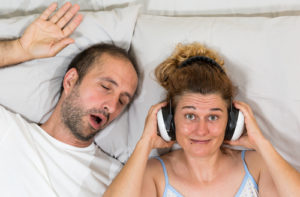
Snoring And Diabetes
People who have diabetes often have sleeping issues, and snoring is one of the most common problems in such people. Snoring actually happens when the air passage is partially blocked during sleep, and the loud noise of snoring is caused when the uvula and soft palate vibrates in the throat while the air moves in and out.
Snorers usually have an irregular sleeping schedule and may tend to wake up very frequently while sleeping. Due to the sleep deprivation, the insulin levels are affected very badly, which means that regular snorers are at a higher risk of being diabetic when compared to those who do not snore.
The Change in Hormone Levels
Our hormone levels are greatly affected by our sleeping habits. When we get tired, our body produces high levels of ghrelin, the hormone that causes hunger. Furthermore, leptin, the hormone that signals the brain that you are full, will become low with sleep deprivation issues.
All this means that snorers are likely to overeat and will have more risk of obesity, which in turn, leads to insulin resistance. Some studies even say that people who face sleeping troubles have higher blood glucose levels.
Researches also say that sleep apnea disorder is very closely linked to blood sugar issues, insulin resistance, and related conditions. Sleep apnea is a condition where you may stop breathing for a few seconds and probably end up waking to gasp in a lot of air to sleep again.
Some people may even recurrent apnea episodes throughout the night. This leads to a lack of oxygen in the body, and as a result, a stress hormone (Cortisol) is released in the body. The increase in Cortisol eventually leads to insulin resistance and affects the blood sugar levels in the body.
Treatment
Lifestyle changes can reduce your snoring levels to a great extent. For starters, do not consume any alcohol before going to sleep; you also need to make your bedroom allergen-free and quit smoking. Apart from that, you can try to sleep on your side, so that it can reduces the pressure on your neck and lets you breathe freely.
You can also use over-the-counter snoring solutions to lessen snoring issues, and get a peaceful night’s sleep. Still, it is better to consult with a doctor as soon as you notice any snoring symptoms or have trouble sleeping. Getting proper medical attention would help to get your blood glucose levels and insulin levels back to normal.
Be the first to comment on "The Link between Snoring and Diabetes"